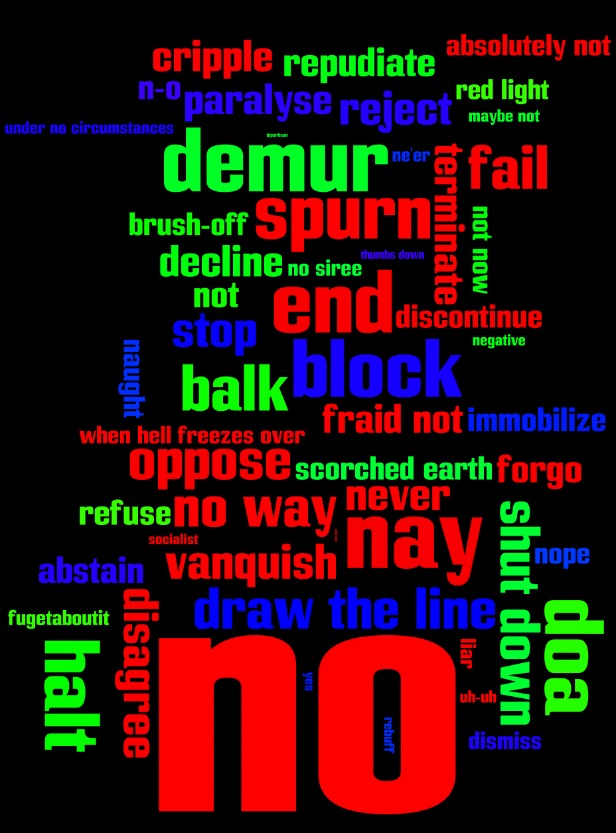 A veteran climate warrior told me recently that he doesn’t believe we’ll ever win the “climate fight” because “climate” itself has become too loaded, a cultural Rorschach, and the battles over it have become proxies for too many other things. We’re bogged down in the quagmire of an intractable left-right civil war, and climate action is a casualty. Like many who’ve contributed here at Grist, he wants to reframe the whole challenge.
A veteran climate warrior told me recently that he doesn’t believe we’ll ever win the “climate fight” because “climate” itself has become too loaded, a cultural Rorschach, and the battles over it have become proxies for too many other things. We’re bogged down in the quagmire of an intractable left-right civil war, and climate action is a casualty. Like many who’ve contributed here at Grist, he wants to reframe the whole challenge.
When he said that about proxies, I couldn’t help thinking of last Friday’s post by Christopher Mims, “Environmentalism is a plot to take over the world, says coalition of Evangelical Christians.” Mims picked up on the absurd 12-part video series from the right-wing Cornwall Alliance, Resisting the Green Dragon, and noted:
Climate change has split the Evangelical Christian world asunder. On one side, a minority say that the biblical edict to look out for the poor and be good stewards of God’s creation makes them natural allies of those who would limit human emissions of greenhouse gases.
On the other, a far larger group argues that climate change is a fairy tale that progressives tell their children to scare them into being good little humanists, and environmentalism is a “false gospel” that threatens to co-opt the teachings of Christ himself.
Nicely put. Except for this: It takes the “Green Dragon” bait and falls into a classic culture-war trap, publicizing the extreme Christian right, allowing it to set the terms and falsely represent the larger evangelical community. Why take the bait? Why follow them down into the quagmire?
While it’s stated like a given, the idea that the number of evangelicals buying into the extreme “Green Dragon” line is “far larger” than the number who support climate action is unsupported in Mims’ post. I’d love to see the numbers. Mims also linked to a piece I recently wrote for Slate in which I reported on the current state of the evangelical “creation care” movement. One stat in my piece may have leapt out: According to a Pew Research Center survey in October, only 16 percent of regular churchgoing white evangelicals said that global warming is a “very serious” problem (compared to 31 percent of Americans overall). What I didn’t include (but now wish I had) is this: If you combine that 16 percent with those who call it a “somewhat serious” problem, the total rises to nearly 47 percent. On the other hand, in the same survey, the combined number of evangelicals who call it either “not a problem” (31 percent) or “not too serious” (19 percent) is about 50 percent. Hmm.
What’s more, political scientist John Green, an advisor to the Pew Forum on Religion & Public Life, noted that 42 percent of evangelicals in that survey said global warming is a problem requiring “immediate government action.” That’s certainly not a majority, but it’s a large number (especially when you consider that evangelicals are something like 25 percent of the population). And when you compare that 42 percent to the 46 percent of Americans overall who gave Pew the same answer — I don’t know, is it possible that evangelical Americans are actually, well, not that different from other Americans?
Evangelical climate advocates like Richard Cizik, with his New Evangelical Partnership (launched earlier this year), and Jim Ball at the Evangelical Environmental Network — both of whom were behind the Evangelical Climate Initiative that turned so many heads (including Grist’s) in 2006 — will tell you that the Cornwall counter-offensive is evidence of the creation-care movement’s success. John Green, for one, agrees. There’s something going on in the evangelical community — a generational shift that the old culture warriors can’t control, and they know it. Jonathan Merritt, the 29-year-old author and creation-care advocate who launched the Southern Baptist Environment and Climate Initiative in 2008, sees an increasing willingness among his peers to work on “common ground” issues, he told me, “especially as young evangelicals come of age and leaders of the religious right fade away.”
Which brings me back to proxies — one of which is the old culture war between conservative Christianity and environmentalism. If you want to build a broader climate-action movement, then you need all the allies you can get, including in the evangelical community. Painting evangelicals — tarring them, really — with a broad brush while patting the real evangelical enviros on the head (such “lovely people,” too bad they’re totally irrelevant) is myopic and self-defeating. This is one reason so many evangelicals — including moderates and progressives — distrust “environmentalists.” What a tragedy if we let this kind of culture-war bait become an obstacle to building the bridges we need to build.
One last note: Building those bridges is more than an abstraction for me, it’s personal. My colleagues in the media are often surprised to learn that I was raised in a conservative evangelical family in Southern California, by way of Texas. I confess I’m no longer much of a churchgoer, but I’m close to my family, and I’ve still got a toe in the evangelical world. Trust me, it’s a lot more complicated than you may think. One of my sisters, a devout evangelical who lives in Nashville, is a huge fan of Al Gore.




